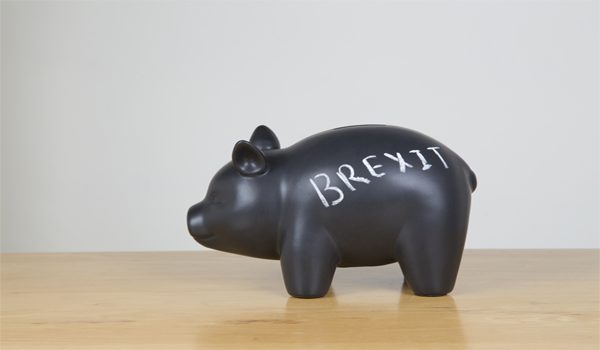Disagreements over the cost of Brexit might lead to a rockier road ahead for both the EU and the UK. The British public sees the two major issues to be control of immigration into the UK and access to the European free market. The EU suggests that the UK may be due to pay the EU €60 billion (£52.75 billion) in 2019. The UK government is disputing this sum. Some parliamentary ministers are even claiming that the EU might owe the UK money.

The cost of Brexit is a major obstacle that must be hurdled before proper Brexit negotiations can take place. This is particularly the case if the UK wants to negotiate a soft Brexit. This would enable the UK to have access to the single market without border checks, but it would also have to permit free movement of EU citizens to live and work in the UK.
A hard Brexit would mean the UK completely removing itself from the European Union, and negotiating to retain access to the free market in the same way that Iceland, Norway, Switzerland and Lichtenstein do. The UK wishes to retain control over immigration, and a soft Brexit is unlikely to achieve this.
Large numbers of those who voted to leave the EU did so with immigration in mind. According to the UK Office of National Statistics, net migration in 2016 totaled 248,000. This means a town the size of Blackpool being placed in the UK every year. A soft Brexit that did not restrict this would not be universally popular.
Prime Minister Theresa May currently seems to favor a hard Brexit, although this may soften as negotiations proceed. The major issue is immigration control. Many believe that the country cannot sustain population growth at the above rate.
The Prime Minister stated “We are not leaving the European Union only to give up control of immigration again. And we are not leaving only to return to the jurisdiction of the European Court of Justice.” The main issue for the EU appears to be mainly financial – the €60 billion it is claiming as the UK’s severance fee.
So, a hard Brexit would mean the UK returning to the WTO (World Trade Organization) rules to trade with its former EU partners and the Commonwealth. A soft Brexit would mean the UK perhaps making a payment to access the free market as Switzerland and others do. However, for the UK, that may also mean the continuation of uncontrolled immigration.
EU negotiators are recommending the UK to pay the money and stop threatening to pull out with a proper legal deal if it wants to take the softer approach to Brexit. Some Europeans believe that the UK could get some’ valuable concessions’ if Theresa may did this. Talks begin next week in Brussels, so there is not much time for the UK to decide on which stance to take.
Some EU governments are prepared to a deal that allows the UK to keep trade open. This would reduce the damage to European economies should the UK decide to trade outside Europe and limit imports from the EU. However, Michel Barnier, the chief EU negotiator the EU on Brexit, has not been given the authority to discuss trade. At least, not until Britain agrees to pay the €60 billion.
We can talk and analyze all we want – the decisions to make must be agreed by Monday: June 19th. This is the date when parties get together to hammer out an agreement suitable to both parties. What that agreement will be is anybody’s guess. However, the UK seems unlikely to agree to maintain the current rate of immigration into its country.
This will affect trade between the two sides and markets will either close or open. The cost of Brexit, that is the sum that the EU claims would have to be paid by the UK to leave, will be a possible barrier to intelligent and meaningful negotiations. What if the EU refused to pay anything and just left? Who would suffer most!